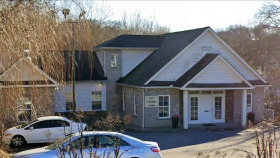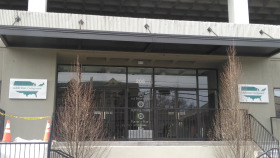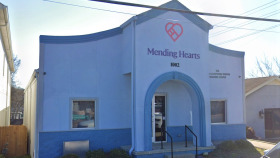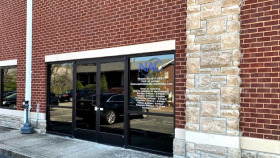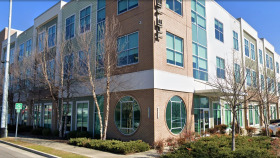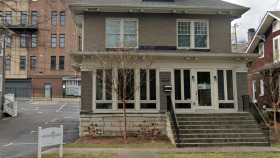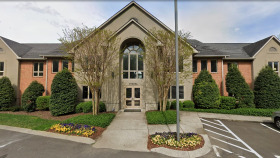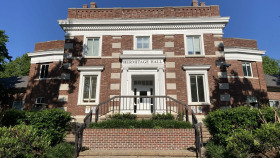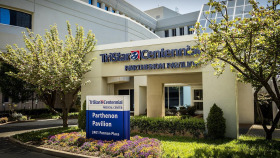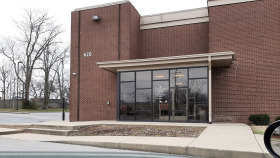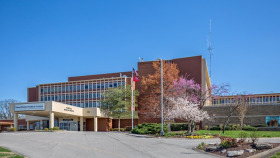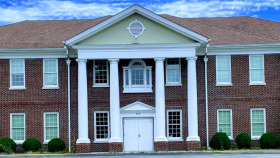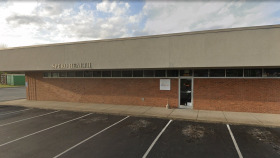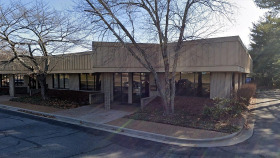Expert Insights
Tennessee isn’t called the Volunteer State for no reason. We believe in giving back, and I read a news article about a young man named Justin Biggs who embodied that spirit. Justin was someone who had struggled with opioid and meth addiction for the better part of a decade; he had also been homeless for nine years. But once he was able to enter a treatment program, he chased recovery with the same intensity he used to chase his drugs of choice. Last year, while living in a halfway house and working a full-time job, Justin realized it was time to pay it forward. He began collecting clothes for the homeless in August: gloves, coats, hoodies, sweatshirts and pants, thermals, and any other items of clothing people were willing to donate. In October, when the East Tennessee weather began to turn cold, Justin went back to his old stomping grounds – the same streets he lived on during his own active addiction. In places that once held only bad memories, Justin was able to make a positive impact on the homeless population by handing out all the donated clothing items, which would help to keep people warm during the coming winter months. He called his clothing drive “Hoodies for the Homeless,” and he plans to do it again in 2023.
~ Rita Milios
How Much Does Drug Rehab in Nashville Cost?
The Tennessee Department of Mental Health and Substance Abuse Services makes it possible for anyone living in Nashville to get help with a substance use disorder.
Low-Cost and Free Drug Rehab Centers in Nashville
Nashville treatment centers want everyone to get help. As such, several programs have been created to help with costs, such as the Substance Abuse Prevention and Treatment Block Grant (SAPT), in which local facilities contract with the state to accept funding that covers people who need care but cannot afford to pay for it.
Eligibility criteria include:
- You have no way to pay for services.
- You are not enrolled in TennCare.
- You do not have third-party healthcare coverage.
- You have maxed out all of your TennCare or third-party benefits.
- You meet the 133% federal poverty guidelines.
Other funding resources that cover your cost include the following:
- Crisis Detoxification
- Adolescent Substance Use Disorders Services Program
- Treatment for Pregnant Women Abusing Substances
- Women’s Recovery and Treatment
- DUI Offenders Alcohol and Drug Addiction Treatment (ADAT)
- Supervised Probation Offender Treatment (SPOT)
- Faith-based programs
Does Insurance Cover Rehab Center Costs?
Private Insurance
Tennessee residents are protected under the federal Mental Health Parity and Addiction Equity Act. This law requires all insurance companies to cover at least some of the cost of substance abuse treatment. Every insurance plan is different and offers specific coverage, and copays and deductibles may apply.
Medicaid
TennCare is Tennessee’s Medicaid program. It covers residents in Tennessee who are parents or caretakers of a minor, pregnant, elderly, or have a disability. To see if you qualify for Medicaid, you must meet income and resource limits.<sup>4</sup>
Medicare
Medicare covers Tennessee residents 65 and older and those with certain disabilities. This government program includes coverage for addiction treatment under various plans. However, not all rehabilitation facilities accept Medicare as a method of payment.
TRICARE
TRICARE in Tennessee provides health insurance coverage for addiction treatment, military personnel, veterans, and their families.
If you have insurance, it could cover part of the costs. Check with your insurance company by calling the number on your card. You may also contact the clinic in Nashville directly to see if you meet the qualifications for funding.
To find free Nashville drug rehabs, get help today at
800-681-1058
(Sponsored)
.
Nashville Alcohol/Drug Use Statistics
Agencies in Tennessee collect data on substance abuse and substance use disorders (SUDs). Alcohol and drug use statistics help inform a plan of action to ensure treatment is accessible to everyone.
Overdoses

In 2021, 712 deaths in Nashville were due to drug overdoses – a 15% increase from 2020.

In 74% of fatal overdoses, fentanyl was the number one drug found in toxicology analysis.2
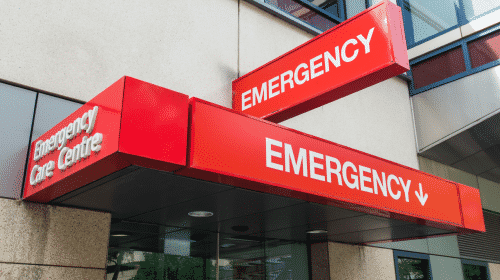
Emergency room visits for drug overdoses decreased slightly from 2,591 in 2020 to 2,583 in 2021.

Most overdose survivors were males ranging from 25 to 34 years of age.
In 2021, 712 deaths in Nashville were due to drug overdoses; this was a 15% increase from the number of drug overdoses in 2020. Males between 35 and 44 were the most common age group of those who had fatal drug overdoses. In 74% of fatal overdoses, fentanyl was present in toxicology analysis. Along with fentanyl, cocaine, and methamphetamine were present in some.
The number of visits to the emergency room for drug overdoses decreased slightly from 2,591 in 2020 to 2,583 in 2021. Most of the overdose survivors were males ranging from 25-34 years of age. The most common drugs involved in non-fatal overdoses were synthetic opioids at 61%, followed by heroin at 34%, and stimulants at 5%.
Additional Nashville overdose statistics include:
- 5,746 fire Department and EMS calls responded to suspected drug overdoses
- 28% of emergency responses in the third quarter required multiple doses of naloxone
- 34% of emergency responses in the fourth quarter required multiple doses of naloxone
Alcohol and Drug Laws in Nashville
Good Samaritan Overdose Prevention Law: Under the Good Samaritan Law, if someone is overdosing and you contact emergency services for help, neither you nor the person overdosing can be arrested or prosecuted for:
- Drug possession
- Being in the vicinity of drug use
- Violating probation or parole due to drug use or possession
- Outstanding warrants from drug use or possession
This law does not protect you from other crimes that may have been committed, however.
Substance Abuse Marketing Law: Passed in 2018, Tennessee is now enforcing regulations that prevent substance abuse treatment facilities from false marketing tactics. Facilities must be transparent and avoid manipulation in all marketing efforts.
Expanded Availability of Naloxone: Naloxone (Narcan) is a life-saving drug that reverses opioid overdoses. Tennessee recently passed a bill that provides more prescriptions of Naloxone to people with an opioid use disorder, their family, friends, coworkers, and anyone else who may be near someone misusing opioids.
There are many great options for accredited drug rehab centers in Nashville. If you need help finding the right one, call
800-681-1058
(Sponsored)
now.
Resources
- Metro Public Health Department of Nashville/ Davidson County. (2021). Quarterly Drug Overdose Surveillance Update.
- Tennessee Department of Mental Health and Substance Abuse Services. (2021). Adult Substance Abuse Treatment.
- U.S. Department of health and human services. (2022). Mental Health and Substance Use Co-Occurring Disorders.
- Substance Abuse and Mental Health Services Administration. (2020). The National Survey on Drug Use and Health Detailed Tables.
- Anxiety & Depression Association of America. (2021). Substance Use.


